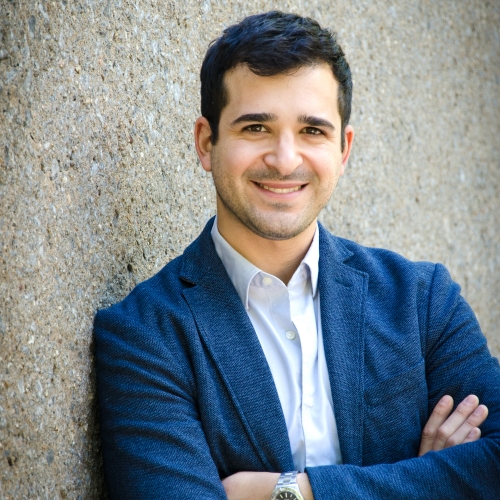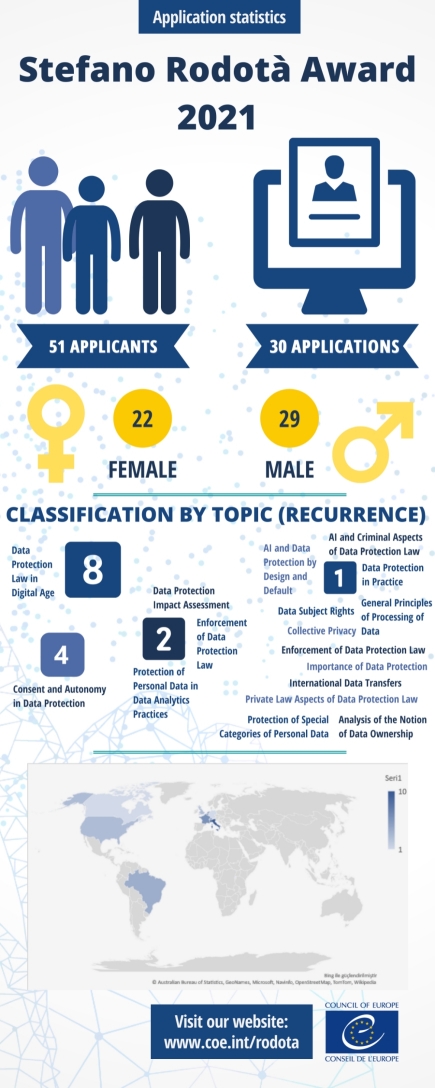2021 Rodotà Award
Stefano Rodotà Award – 2021 Edition

On the 40th Anniversary of Convention 108, the winners are…
The Winner of the Stefano Rodotà Award 2021 is Gabriel Kasper for his work on "People analytics in private-law employment relationships - Proposals for a more effective enforcement of data protection law”.
The jury decided to also grant a Special mention to Ignacio Cofone for his article on "Beyond Data Ownership".
Gabriel Kasper and Ignacio Cofone will be invited to present their research to the Committee of Convention 108, on the occasion of its 41st Plenary meeting, from 28 to 30 June.

Gabriel Kasper
is in the final stage of his PhD project at University of St. Gallen, Switzerland. He was a visiting researcher at the Berkman Klein Center for Internet & Society at Harvard University, USA in 2019. He currently works as an attorney-at-law specialised in data protection law and the digital economy.
Some employers use people analytics to systematically evaluate their human capital in order to increase the value of the company. In doing so, they face data protection and employment law challenges. For example, they must apply the law in a risk-oriented manner; furthermore, consent constitutes a fragile legal basis for data processing in an employment context. Legal practitioners, HR and IT managers will not only find answers to their questions on the topic but also empirical data from a cross-industry study. On an overarching level, this dissertation argues for a professionalisation and democratisation of data protection law in order to achieve better law enforcement in practice. The cutting-edge and internationally oriented work takes into account the fully revised Swiss Data Protection Act, the modernised Convention 108+, the EU General Data Protection Regulation and certain aspects of US data protection law.
The complete work is available here as a free download (in German).

Ignacio Cofone
is an Assistant Professor and Norton Rose Fulbright Faculty Scholar at McGill University, Faculty of Law. Previously, he was Post-doctoral Research Fellow at the NYU Information Law Institute, a Resident Fellow at the Yale Law School Information Society Project, and a Legal Advisor for the City of Buenos Aires.
Data ownership may currently be the proposal receiving the most significant attention in the mainstream conversation about privacy. This article, Beyond Data Ownership, shows that property alone is self-defeating as a privacy measure. Our digital environments are marked by substantial power imbalances between data processors and data subjects. Data ownership proposals will not alter these realities. It shows that data ownership not only may be aiming to achieve the wrong thing but, moreover, fails to achieve its goal: control over personal information.
The normative implications of the article’s finding go beyond debunking the popular data ownership initiative. The article operationalises how to remedy the problems of property rules through two current policy discussions in privacy regulation: purpose limitation and right to a remedy. It suggests how legislators and courts could, in concrete terms, reform these two areas to optimise privacy protection.





